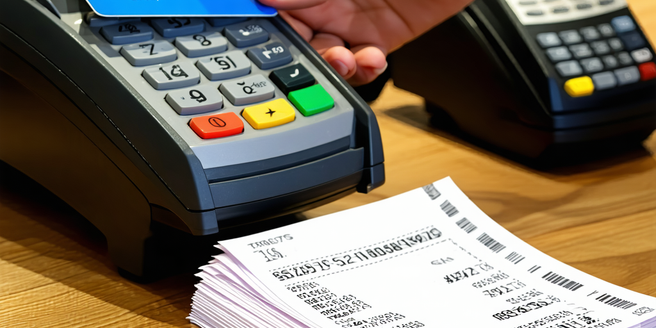Benefits of Paying Taxes with Credit Cards
Using credit cards for tax payments offers several advantages. One of the primary benefits is the ability to earn reward points or cashback, which can offset the cost of taxes. Additionally, paying taxes with a credit card can help manage cash flow by allowing you to spread the cost over several months, assuming you pay off the balance within the card’s billing cycle. This method may also provide additional time to gather funds without incurring late penalties from the IRS. Credit cards often come with fraud protection, providing peace of mind for online transactions. Furthermore, if you’re working towards a spending threshold to unlock certain credit card bonuses, tax payments can help you reach that goal. However, it’s important to factor in the fees associated with this payment method to ensure the overall benefit.
Understanding the Fees Involved
When paying taxes with a credit card, it is crucial to understand the fees involved. Typically, third-party processors who handle these transactions charge a service fee, often ranging from 1.87% to 3.93% of the total tax amount. Although these fees can be offset by the rewards earned, it’s essential to calculate if the benefits outweigh the costs. Additionally, if you carry a balance beyond the credit card’s billing cycle, interest charges can further increase the expense. It’s recommended to compare service fees among different processors to find the most cost-effective option. Some tax authorities may also offer a flat fee payment option, which might be more economical depending on your tax amount. Properly understanding these fees will help ensure you make an informed decision that aligns with your financial goals.
Finding the Right Credit Card for Tax Payments
Choosing the best credit card for tax payments requires evaluation of several factors. Firstly, consider cards that offer high rewards rates or perks aligned with your spending habits. Cards that offer cashback, travel points, or other incentives can help offset processing fees and even provide a net gain. Additionally, many cards come with introductory 0% APR offers on purchases, which can be valuable if you need more time to pay your tax bill. Analyze if the card offers sufficient credit limit to cover your tax due without maxing out, which could negatively impact your credit score. Reading reviews and understanding terms like interest rates and annual fees will also assist in making the right choice. Ultimately, selecting a card that provides meaningful rewards while maintaining manageable fees is vital for maximizing benefits.
Strategies to Maximize Reward Points
To maximize reward points when paying taxes with a credit card, start by selecting a card that offers high reward rates on general or specific spending categories. Timing your payment to align with cashback promotions or spending bonuses can substantially increase your reward earnings. Additionally, use tax payments to meet minimum spending requirements for hefty initial bonus points. If you already have a rewards strategy, consider how tax payments can complement it without causing imbalances. Evaluate whether the card has caps on earning rewards to avoid hitting limits prematurely. Couple your credit card choice with other financial strategies, such as paying the bill in full to prevent interest charges, ensuring that the rewards are genuinely beneficial. Accumulating points this way can be particularly advantageous when coupled with travel rewards programs for maximum redemption value.
How to Safely Manage Tax Debt with Credit Cards
Managing tax debt with credit cards demands careful financial planning. Begin by confirming that your credit limit can accommodate the tax amount without exceeding usage, which can harm credit scores. Consider using cards with low-interest rates or promotional 0% APR offers to spread payments across several months without incurring hefty interest charges. Prioritize drafting a repayment plan that focuses on clearing balances swiftly, thus avoiding the cycle of accumulating debt. Transaction alerts and budgeting tools offered by card issuers can aid you in maintaining timely payments. Additionally, ensure that using credit does not jeopardize your ability to meet essential living expenses. Consulting with a financial advisor may offer additional insights into sustainable practices when managing such debts, enabling you to preserve credit health while tackling obligations efficiently.
Common Mistakes to Avoid When Using Credit Cards for Taxes
One common mistake is failing to account for the processing fees which can erode or negate the rewards earned. It’s essential to calculate the cost-benefit before proceeding. Another pitfall is not having a clear plan to pay off the credit card balance promptly, which can lead to accumulating high-interest debts. Using a credit card with low reward rates compared to the fees or not aligning the payment with bonus opportunities are also frequent errors. Additionally, not keeping track of credit utilization can negatively impact your credit score. Lastly, forgetting to check if your chosen card has limitations or restrictions on the reward points obtained from tax payments can result in unexpected scenarios. Being mindful of these factors ensures that you effectively harness the advantages of using credit cards for tax payments.


